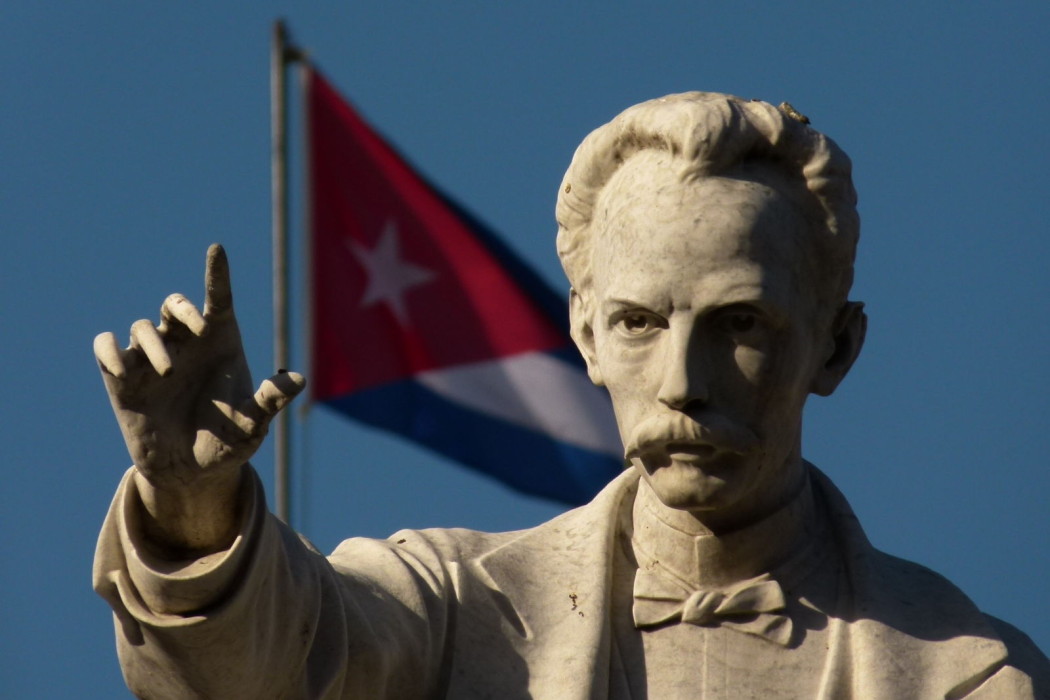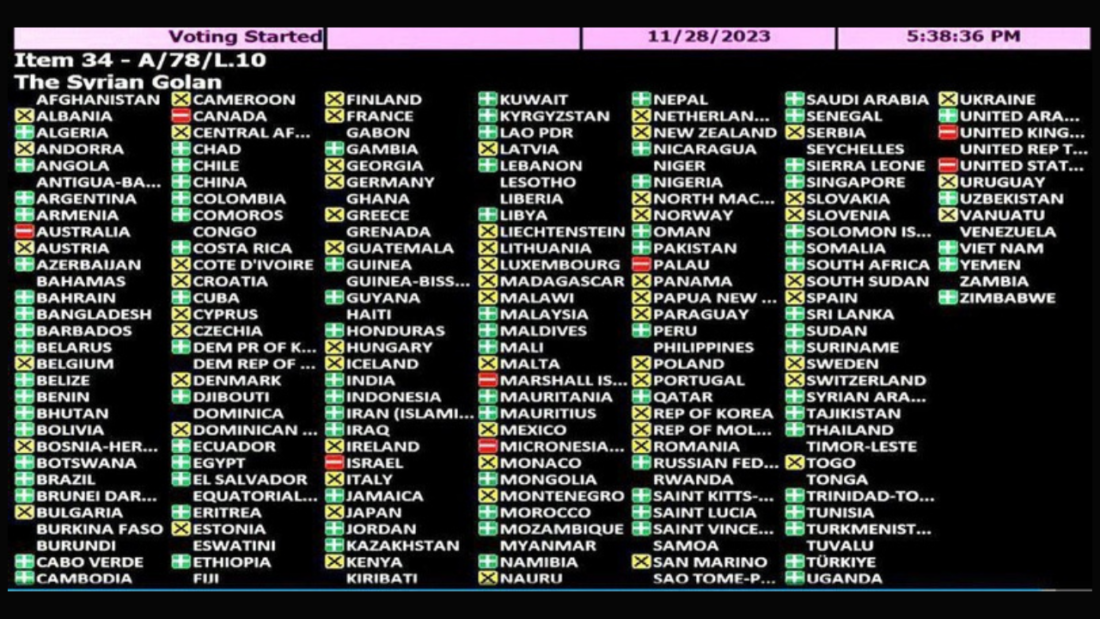
Speech of Stefanos Stefanou, member of the Political Bureau of the C.C. of AKEL, at the event dedicated to the anniversary of the birth of Cuba’s national hero and poet
Friday, 27th January 2017, Jose Marti monument, Nicosia
 On behalf of AKEL, we express our gratitude to the Embassy of Cuba and personally to Ambassador Aramis Fuente for the invitation to attend and address today’s event.
On behalf of AKEL, we express our gratitude to the Embassy of Cuba and personally to Ambassador Aramis Fuente for the invitation to attend and address today’s event.
The presence of AKEL and the representatives of all the organizations of the People’s Movement of the Left is an expression of the Cypriot Left’s consistent and unwavering solidarity towards Cuba and its heroic people. More widely the peoples of Cyprus and Cuba are linked by historical ties of sincere friendship, a fact which is illustrated both by the Monument of Cuba’s National Hero Jose Marti here in Nicosia and by the statue of Archbishop Makarios in Havana. In fact, the statue of Makarios faces the port of Havana to remind us that Cyprus was the country that sent the first ship to Cuba to breach the naval blockade that the United States had imposed against the Island of the Revolution.
José Martí that we honor today is the national hero of Cuba who personified Cuba’s struggle for freedom from the Spanish colonialists and the country’s independence. Jose Marti was the Apostle of the Nation, who left his mark on the history and culture of Cuba and Latin America.
His life flowed as a torrent of action, reflection, creativity and revolutionary political action.
He was a truly multidimensional personality; a revolutionary, but also intellectual.
Α poet and α politician.
Α military man, but also a painter.
A diplomat, teacher, journalist, lawyer, philologist and a translator of several languages.
The figure of Jose Marti is to be found all over Cuba. His monument stands in Revolution Square in Havana, while the country’s airport bears his name. No wonder Fidel, Che, Camilo, and Raul referred to the values of Jose Marti as the ideological and political foundation of the socialist revolution in Cuba. Patriotism, internationalism and humanism – all that the socialist vision itself encompasses – are fundamental to Jose Marti’s theory and practice, words and actions, lyrics and battles.
Jose Marti devoted – and eventually sacrificed – his life since childhood to the struggle of his homeland. When he was just 16 years he published the magazine “Free country” which subsequently led to his imprisonment in the dungeons of the colonialists. He was then exiled to Spain. In exile, and wherever he traveled around the world, he tirelessly informed people of Cuba’s struggle. Later on, he organized the strengthening of the national liberation struggle and became the soul of the Cuban Revolutionary Party. He joins the guerrilla war, where he was heroically killed without having the chance to see his country being liberated in 1902 from the shackles of Spanish colonialism.
José Martí’s dedication to his country’s struggle – both through his literary work, but primarily through his political revolutionary action – inspired, many years after his death, the struggle of the Cuban people to overthrow the dictatorship of the American puppet tyrant Batista.
Today it is reflected in Cuba’s defiant stand against the imperialist Goliath, namely the USA, who have never accepted the fact that 90 km from their coast, is a people refusing to yield to their orders and dictates; a people determined to defend their country, leadership, choices and the social and economic development of their country they themselves have chosen to pursue.
Patriotism and national independence for Martí merges with the universal and internationalist outlook of the world and life, starting of course from Latin America. Martí, following the footsteps of Simon Bolivar, projected the vision of Latin American unity, integration and solidarity, the obligation to awaken and promote the uprising of the continent’s indigenous peoples; the obligation to achieve the liberation of “Our America” as he himself said, that is the America that belongs to the peoples of the American continent, and not to the colonizers.
Besides, Marti’s incisive political thought foresaw from the 19th century that there was “another America” as well, the “America that isn’t ours”, namely the terrible eagle of the North that “will soon knock on our door.” He was of course referring then to the newly formed – at that time – United States of America which was turning into an expansionist empire, that had already exterminated the indigenous Native Indians and grabbed their land; an empire that kept African Americans in slavery, and that subsequently would shackle the South American peoples through the chains of economic and political dependency and the brutal force exercised by the dictatorial regimes they imposed on the peoples.
However, Marti’s anti-imperialism was not based on the cultivation of national hostility. Quite the opposite, in the few years he lived in the USA, he viewed the struggling American working people through the perception of an emerging proletarian internationalism and experienced at close hand the events of May Day 1886 in Chicago where the working class came to the forefront of history.
Marti’s internationalism is expressed concisely in his epic phrase: «Patria es humanidad», that is to say, “Homeland Is Humanity.” It is precisely this internationalism that guided – decades later – socialist Cuba to send volunteer troops alongside the African peoples who were fighting against the racist South African apartheid regime. The President of Namibia characteristically said at Fidel’s funeral: “When the troops of the racist South African regime attacked us, the Cubans were the first who came to help us militarily and the first to receive our orphans and educated them in their schools. When everybody else went back to grab our gold and diamonds, the Cubans came back only to gather their dead.”
The same internationalism is expressed today also through the dozens of voluntary missions made up of Cuban doctors and through the supply of medical supplies to every corner of the world from the quake-hit Haiti, bloodstained suffering Syria, to Kashmir, West Africa against Ebola and to dozens of countries around the world to provide free care and surgery.
Cuban internationalism is of course expressed also through the implementation of a principled policy in the country’s foreign policy, which as we know was, and is a consistent ally of Cyprus and our struggle.
Finally, for Jose Marti, both patriotism and internationalism cannot but be seen only below, that is from the perspective of the peoples and not the bosses and elite; from the bastion of the down trodden and oppressed. Besides, the phrase “I want to share my fate with the poor of the earth” is the hallmark of the class consciousness that characterized both his theory and practice. The revolutionary thinker uniquely combined innovative thinking with pioneering action to make the life for the poor better, above all through education and culture.
We see this legacy today in the Cuban Revolution’s achievements and gains that are taking place in the difficult conditions of the continuing US blockade. The construction of socialism in Cuba has achieved one of the most comprehensive education, health and social care systems in the world, without any Cuban citizen spending a single cent. In Cuba the words illiteracy, homelessness, unemployment, hunger, child exploitation and racism are unknown, at the same time as the capitalist world is immersed in crisis, poverty and deadlocks.
This is therefore the reason why we will continue to defend and stand in solidarity with the Island of the Revolution, because imperialism can change its tactics towards Cuba, but it has never ceased to have the same strategic goal: to overthrow the Cuban Revolution.
We also recall that despite the steps taken, the US Obama administration has maintained the economic, trade and financial blockade against Cuba. It did not close down the US prison at Guantanamo, as Obama had repeatedly promised, while the new US President Donald Trump is openly issuing threats against Cuba.
AKEL reiterates on this occasion that we will continue to join our voice with the Cyprus-Cuba Friendship Association and the international solidarity movement to demand from the US that it complies with the resolutions approved by the UN General Assembly, which for 25 consecutive years has been calling for the termination of the blockade. Furthermore, AKEL demands that the US government shuts down the torture prison it has in the military base of Guantanamo and return the territory of the base back to Cuba.
This struggle is the duty of every democratic citizen of the world.
This struggle is for the Left its internationalist duty towards Cuba, which is holding high the banners of socialism in these hard times of the new order.
This struggle is also our own tribute in practice to the immortal leader of the Revolution Fidel Castro and the legendary Che Guevara.
This is also our duty towards the revolutionary thinker Jose Marti, who all his life demonstrated that patriotism means first combating imperialist shackles and subsequently waging the struggle for social justice.
Dear comrades and friends,
Jose Marti once wrote “How infinite does man become when he knows to exist!”
Socialist Cuba is today demonstrating that it knows to exist because it knows how to struggle.




